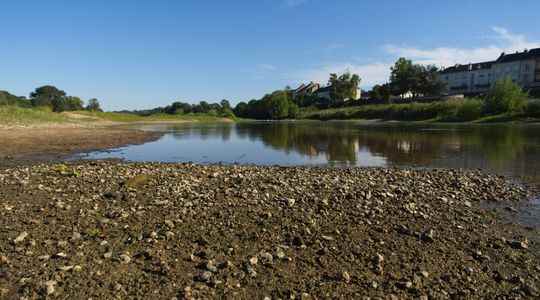Perceived until then as an inexhaustible commodity, water could well, due to repeated episodes of heat wave, become a rare commodity. Indeed, blue gold no longer flows freely in France, to the point that many prefects have had to adopt decrees drastically limiting its use. To “deal with the most serious water crisis ever recorded in our country”, in the words of the Prime Minister, Élisabeth Borne, the idea of including a “right to water” in the Constitution is making its path. But what impact would that have in practice? For the lawyer Arnaud Gossement, specialist in environmental law, the State should rather act on the tax lever to force the biggest consumers.
The Express:There are several laws and directives relating to the right to water at European and national level. Can you introduce them to us?
Arnaud Gossement : It is difficult to mention them all as there are so many! The most important is the European Water Framework Directive, adopted in 2000, which establishes a framework for a comprehensive Community policy in this field. It was then transposed by a law of April 21, 2004. There are therefore texts which directly concern water: I can cite the 2006 law on water and aquatic environments, intended for local elected officials, but also texts relating to the environment as a whole, which relate to water. There is thus an obligation to assess the impact of all industrial projects on the environment and in particular on water resources. From a legal point of view, the arsenal is therefore very complete.
Inscribing the “right to water” in the Constitution would it therefore be of any use?
The proposal made by the president of the LFI group to the National Assembly differs from what exists in our law. While our texts seek to protect water resources, Mathilde Panot proposes devoting a form of human right to water. His idea is to expand the legislation by establishing a “right to water”, while our texts focus more on a “right to water”. That said, this inclusion in the Constitution does not seem to me to be very useful. It wouldn’t solve the problems we’re facing. Our country tends to think that writing a rule of law solves problems, but that is rarely the case. We make a lot of laws without asking if they are applied. Ensuring compliance with existing texts would be useful before drafting new ones.
In addition, launching a process to amend the Constitution could prove dangerous, as some elected officials could take advantage of it to slip in proposals that would weaken the place of the environment in the Constitution. I am thinking of the much-discussed precautionary principle, which allows decision-makers to take measures to protect the environment. Finally, one can legitimately think that such a revision would have practically no chance of succeeding. During the last five years, the three attempts to revise the Constitution failed. On the environmental subject, there are more important battles to fight than this one.
What effective measures could the State adopt?
First of all, there is a cultural problem in France. We feel that water is an infinite and free resource, which we can use as we see fit. The current episode of drought proves the contrary. Second problem: the means. It would be useful to strengthen the human and material resources of the environmental police, responsible in particular for preventing and repressing violations of the right to water. Third problem: financing the water policy. It would be interesting here to finally apply the polluter-pays principle.
Today, the largest water consumers, the agricultural and industrial sectors, do not contribute to this financing in a progressive manner. Tax leverage would be effective in combating excessive consumption and waste. With regard to individuals, we must anticipate a probable increase in the cost of water consumption thanks to the tax tool. Water becoming a more expensive product, a reflection on the costs of its consumption will necessarily occur.
Is the problem of water given enough consideration in our society?
I believe that it is important not to cut the environment into slices, but to take an interest in this issue in its entirety. We tend to fragment the environment into several subjects, when it forms only one. Otherwise, we risk favoring false solutions. I am thinking, for example, of techniques aimed at capturing CO2 which may have an interest for the climate but which may also have negative effects for the soil. IPCC and IPBES scientists agree that we must think about climate and nature at the same time. It is not a question of reacting to the news of a moment, of responding to a media buzz, but of taking coherent measures.
In concrete terms, rather than embarking on yet another revision of the Constitution, it would be wise to immediately discuss the finance bill which is currently being drawn up. Today, taxation too often encourages the destruction of the environment, for example by exempting certain sectors from taxes on hydrocarbons. This can not go on. Extreme weather events force us to rethink our environmental policy.
